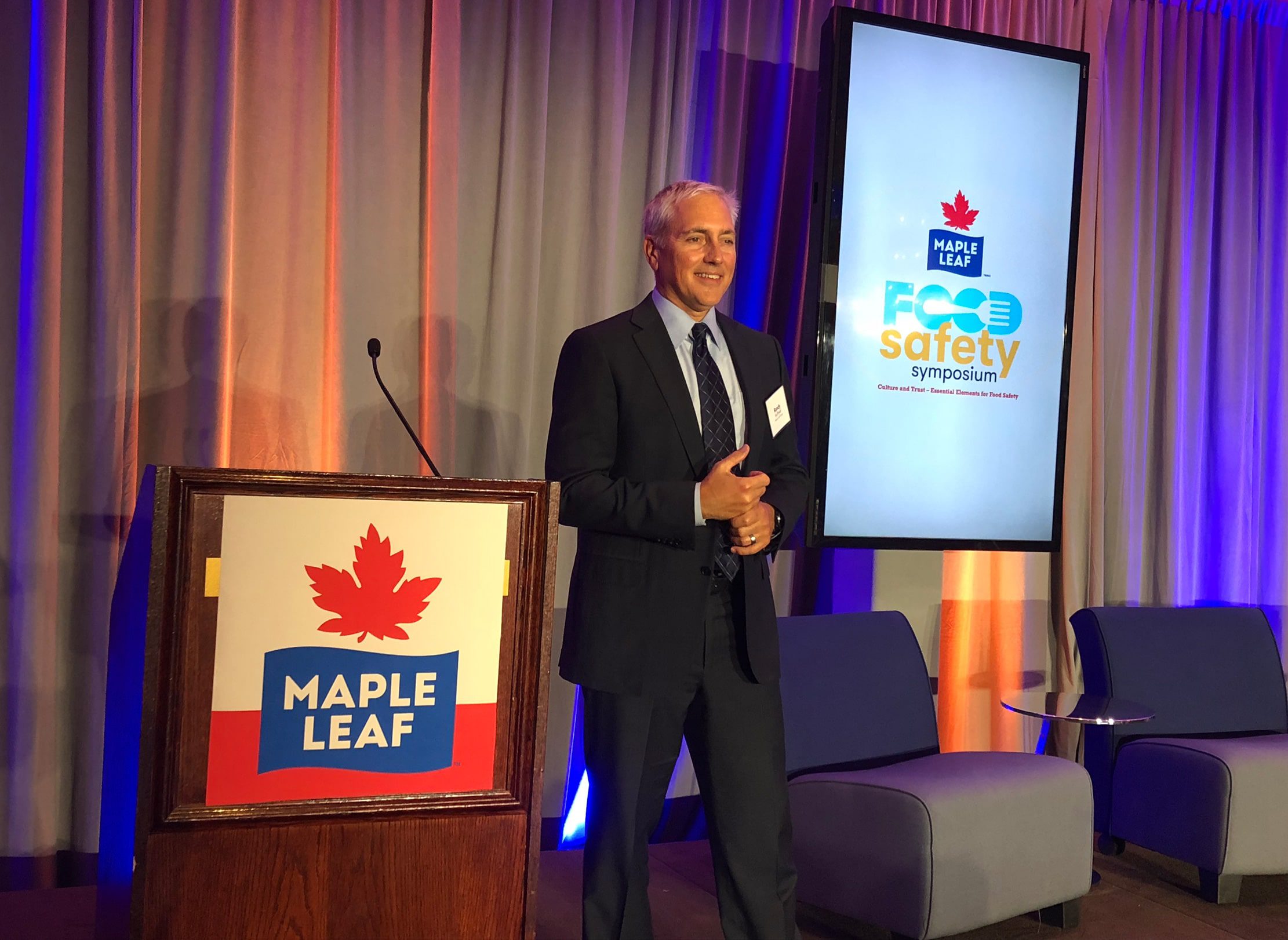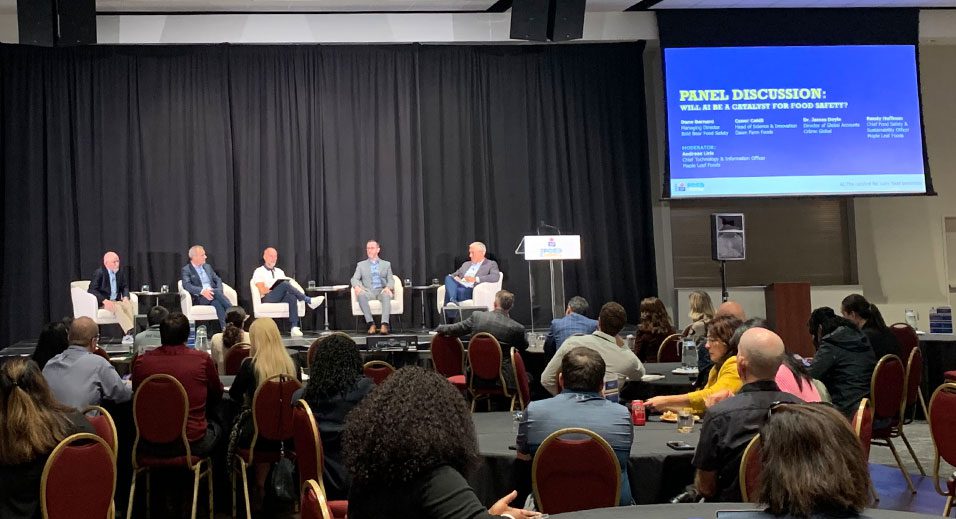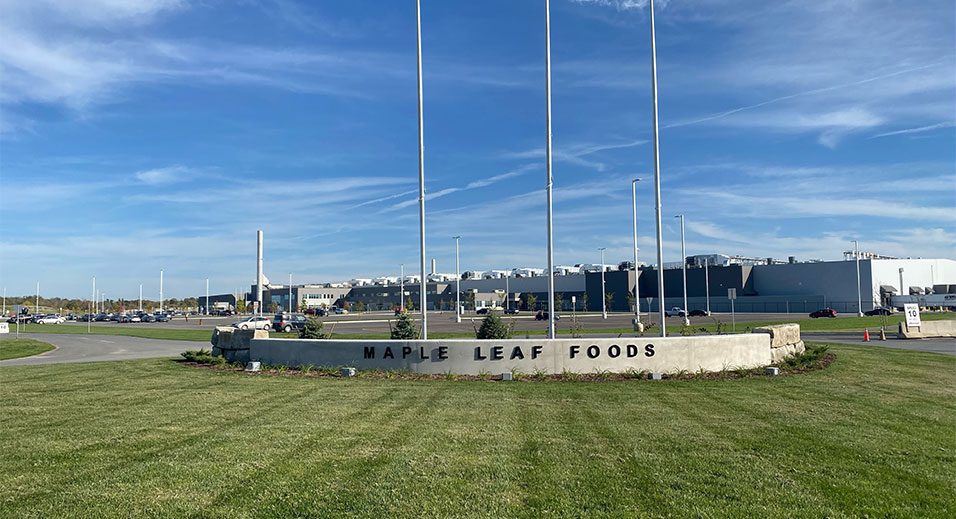Maple Leaf Foods hosted its 10th annual Food Safety Symposium on October 2nd, 2018, as part of its ongoing commitment to advancing food safety and trust.
The event has been held every year since the tragic events of August 2008 where 23 Canadians lost their lives and many more become ill as a result of products contaminated with listeria monocytogenes, which were made at the Maple Leaf Foods’ Bartor Road facility in Toronto.
This tragedy has led Maple Leaf Foods to make a long-term commitment to become a global leader in food safety through significant focus and investment in people, technologies and leading food safety practices. This includes enhancing learning and food safety practices across the industry.
Maple Leaf Foods believes that through transparency and sharing of experiences, they can help other food companies improve and avoid similar situations. “Transparency and openness is key to creating a stronger and safer food safety culture in North America, which consumers can trust and rely on. We will never stop learning and sharing,” said Rick Young, senior vice president, operations, supply chain and purchasing, Maple Leaf Foods.
For the past 10 years, the annual symposium has brought together individuals from the industry, government and academia to join in open dialogue, debate and learnings about important food safety topics. Today was no different.
The theme of this year’s symposium was ‘Culture and Trust – Essential Elements for Food Safety’. “Our industry faces a trust gap and we must shift and change in order to gain trust of consumers in the health and safety of the food we produce,” said Randy Huffman, chief food safety & sustainability officer, Maple Leaf Foods. “Building trust through increasing transparency in how our food is made is essential in building faith in the efficacy of the food system.”
Huffman acknowledged that the industry faces a ‘trust gap’ – a gap that has been growing between those who produce food and those who consume it. That’s why it’s important that we trust our ourselves, our colleagues, our suppliers and create a strong bond within the manufacturing environment. For Huffman, “the important part is producing safe food every day.”
For the first time in the symposium’s history, attendees heard emotional and impactful accounts from individuals who were victims of foodborne illness. Tressa Bennett and Ken Koehler, speakers from the advocacy organization, Stop Foodborne Illness, gave firsthand accounts of their experiences having to live through life-threatening foodborne illnesses.
Bennett, during her pregnancy, ingested bacteria from contaminated food that infected her uterus and caused her and her unborn twins severe illness. For her, the event was traumatic and the recovery long as she watched her newborn twins battle the infection. “I should have been strong, but in so many ways, I wasn’t. Even now, I’m still very emotional,” said Bennett while holding back tears.
Koehler then talked about his experience with salmonella infection. “Reliving those memories that you neatly put away, came up to the surface. You don’t realize how traumatic an experience could be,” he said.
Over 150 symposium participants hung onto the speakers’ every word as their stories drove home the importance of safe food.
These impactful stories were followed by a line-up of food industry professional who discussed how relationships, trust and culture come to life in the food operations they have led.
The event concluded with a strong message of building culture and trust within food organizations. A message that Maple Leaf Foods hopes attendees will bring back to their organizations and continue to share the learnings of food safety.
Next year’s Maple Leaf Foods Food Safety Symposium will be held on October 8, 2019 in Mississauga, Ontario. For future information on the 2019 symposium, visit: www.mapleleaffoods.com/our-commitments/safe-food/.



